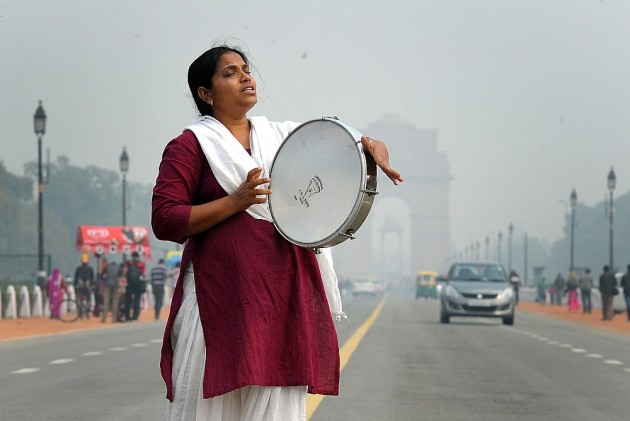Once upon a time it is now. And in the now I want to tell you a story. Please do pay heed to this story. It is a real story with twists and turns. It has songs and dance. It has a tamasha (a traditional folk theatre show in Maharashtra, which includes dance and songs) and a powada ( a ballad). It has action. But by and large, it is about inaction. It is about justice and injustice. And finally, since we live in strange times, this tale tale has no happy ending, nor winners. If you look hard enough, you may find a moral in this story. But to understand it, Rule number one is: pay attention. Rule number two is: stay awake.
So…
Once upon a time and the time is sort-of, now, there is a rashtra. Some call it the Maha Rashtra. To imagine Maha-Rashtra as a real place is to miss the point. Everything is invented, manipulated, shadowy–and a show; a well choreographed performance.
Those in power are not in power. And those out of power wield it best. Knowing all this, the Kabir Kala Manch Defence Committee meet the Maha Maharaja of the state in his home-cum-office at Varsha, in 2012. Our agenda: to request his government to withdraw false charges against the Lok Shahirs (people’s poets) from the Kabir Kala Manch, and ensure them the right to perform.
The security is polite. The Maha Maharaja is a statesman. Pleasantries are exchanged. Tea and poha (a savoury snack made of flattened rice) are served. Anand Pathwardhan boots up his Apple Mac and showcases excerpts from his documentary Jai Bhim Comrade on a white-washed wall. on screen, Sheetal Sathe and her co-members of Kabir Kala Manch mobilise audiences in the name of Ambedkar and Phule. There are some sharp witticisms about the abject poverty and slum discontentment. The 15-minute screening is concluded with the following song:
Angrez aaya, machine laya, mil banaya, zhopad patti
Chamar, bunker lohar mehnat, sab samaya zhopad patti
(The british came, brought their machines, made the mills and the slums
Cobbler, weaver, ironsmith, the dregs of our society live in the slums)
The song culminates with the lines:
Gora jake aya kala. Toota woh sapnoka manzar
Sath saalon mein chuna laga hai
Sath saalon mein chuna lagake bikti reh gayi zhopad patti
(The white man exited, the dark-skinned took over,
The land of dreams, collapsed.
The slums got a first coat of primer in seven years,
In seven years, the slums were cheated and put on sale)
For one nano-second, there is darkness. The Maha Maharaja returns to his seat; the meeting with the leading lights of the defence committee is re-convened. The point is made: the state should promptly withdraw charges against Deepak Dengle and Sidharth Bhosale and also Sheetal Sathe, Sagar Gorkhe, Sachin Mali and Ramesh Ghaichor. Above all, that artistes be granted the permission to perform.
The Maha Maharaja agrees that human rights are meant to be defended.Then we chit-chat about the proliferation of Naxalism into urban centres in the state, and how it should be curbed in a humanitarian way. This goes on for 35 minutes. Promises are made. We exit.
Time passes.
A bit slower for the members in jail, and for those outside on bail. Meanwhile the official record of the above meeting with the Maha Maharaja goes missing.
This extract from an essay by Ramu Ramanathan has been re-published from India Diversity edited by Hilda David and Francis Jarman, Uttar Pradesh: Om Books International, 2017, with permission from the editors, publisher and the author.





